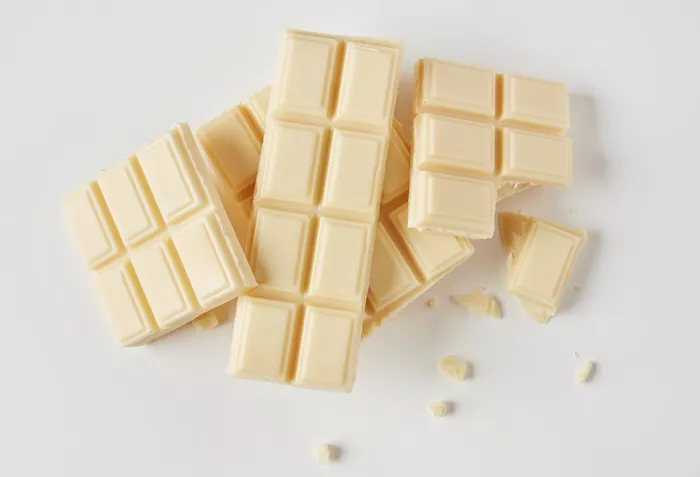Breastfeeding is a time of close attention to diet and nutrition. As a new mother, you might be wondering about the safety of various foods and how they could impact your baby. One common question is whether it is safe to eat white chocolate while breastfeeding. This article explores the considerations, benefits, and potential impacts of white chocolate consumption during breastfeeding.
Understanding White Chocolate
White chocolate is distinct from milk and dark chocolates in that it does not contain cocoa solids. Instead, it is made from cocoa butter, sugar, and milk solids. Its unique composition means it lacks the characteristic chocolate flavor and some of the nutritional components found in other chocolate types.
Composition of White Chocolate
White chocolate primarily consists of:
Cocoa Butter: This is the fat extracted from cocoa beans.
Sugar: White chocolate contains significant amounts of sugar for sweetness.
Milk Solids: These contribute to the creamy texture and flavor.
Unlike dark or milk chocolate, white chocolate does not provide the same level of antioxidants and minerals. It is also higher in sugar and fat.
Nutritional Considerations
When breastfeeding, maintaining a balanced diet is essential for both your health and your baby’s development. White chocolate’s nutritional profile includes:
High Sugar Content: Excessive sugar can contribute to weight gain and other health issues.
Fat: It contains cocoa butter, which is a source of fat.
Calcium and Protein: Milk solids add some calcium and protein, though not as much as in milk or yogurt.
SEE ALSO: What Foods Increase Fat in Breast Milk?
Health Implications for the Breastfeeding Mother
Eating white chocolate in moderation is generally considered safe during breastfeeding. However, here are a few health considerations:
Caloric Intake:
White chocolate is calorie-dense. Overconsumption can contribute to weight gain.
Blood Sugar Levels:
High sugar content can affect blood sugar levels.
Managing sugar intake is important, especially for those with diabetes or gestational diabetes.
Impact on the Baby
Most foods you eat will pass into your breast milk in small amounts. The effect of white chocolate on your baby is typically minimal, but here are a few points to consider:
Sugar Content:
High sugar levels in your diet can influence your baby’s taste preferences. Excessive sugar intake can also impact your baby’s oral health.
Potential Allergens:
While white chocolate is less likely to cause allergies compared to other chocolate types, be mindful of any signs of food sensitivities in your baby.
Moderation is Key
The key to enjoying white chocolate while breastfeeding is moderation. Here are some tips:
Limit Portions:
Keep your consumption to small amounts to avoid excessive sugar and fat intake.
Balance Your Diet:
Ensure that white chocolate does not replace more nutritious foods in your diet.
Healthy Alternatives
If you are concerned about the high sugar and fat content in white chocolate, consider healthier alternatives:
Dark Chocolate:
Contains cocoa solids and is richer in antioxidants.
Fruit-Based Desserts:
Offer natural sweetness and additional nutrients.
Consult Your Healthcare Provider
Before making any significant changes to your diet, including consuming white chocolate, it’s always a good idea to consult with your healthcare provider. They can provide personalized advice based on your health and dietary needs.
Conclusion
Eating white chocolate while breastfeeding is generally safe when consumed in moderation. It’s important to maintain a balanced diet and be mindful of how foods might affect your baby. By enjoying white chocolate in small quantities and focusing on a well-rounded diet, you can satisfy your cravings without compromising your health or your baby’s well-being.
In summary, white chocolate can be part of a balanced diet during breastfeeding. Pay attention to portion sizes, and remember that moderation and variety are key to a healthy diet.
FAQs
What Chocolate Can I Eat While Breastfeeding?
When it comes to eating chocolate while breastfeeding, moderation is key. You can enjoy most types of chocolate, including:
Dark Chocolate: Rich in antioxidants and lower in sugar, dark chocolate can be a healthier option. It contains less sugar and fat compared to milk and white chocolate.
Milk Chocolate: This is safe to eat but contains more sugar and fat than dark chocolate. If you choose milk chocolate, do so in moderation.
White Chocolate: While it doesn’t contain cocoa solids, it is higher in sugar and fat. It’s best enjoyed in small amounts.
Overall, the type of chocolate you choose should depend on your personal preference, dietary needs, and how your baby responds to your diet.
Does Chocolate Cause Gas in Breastmilk?
Chocolate itself does not directly cause gas in breastmilk, but it does contain caffeine and a compound called theobromine, which can be transferred to breastmilk. In some babies, these substances may cause irritability, fussiness, or gas if consumed in large quantities.
However, most babies tolerate small amounts of chocolate in their mother’s diet without any issues. If you notice that your baby becomes gassy, fussy, or has difficulty sleeping after you eat chocolate, you might want to reduce your intake to see if there’s an improvement.
What Food to Avoid While Breastfeeding?
While breastfeeding, it’s important to eat a well-balanced diet, but there are a few foods you might want to limit or avoid:
High Mercury Fish: Avoid fish like shark, swordfish, and king mackerel due to their high mercury content.
Alcohol: Alcohol can pass into breastmilk and affect your baby. If you do drink, wait at least 2-3 hours per drink before breastfeeding.
Caffeine: Limit caffeine intake to about 200-300 mg per day (about 1-2 cups of coffee), as too much caffeine can make your baby restless.
Certain Herbal Teas: Some herbs like sage, peppermint, and parsley can decrease milk supply.
Spicy Foods: Some babies may react to spicy foods in their mother’s diet, though this varies.
Allergenic Foods: If your baby has a known allergy or shows signs of a food sensitivity (e.g., dairy, nuts), avoid those foods.


